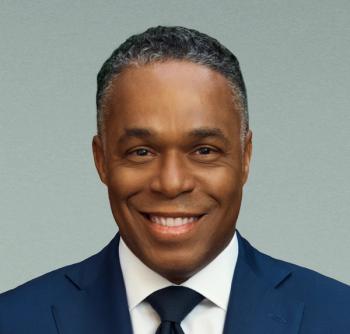
Kamala Harris and health policy: Maternal health, abortion rights, the Affordable Care Act, equity and AI
President Biden isn’t seeking re-election and has endorsed Harris. She’s been a forceful advocate on a number of the administration’s key health priorities.
Vice President Kamala Harris has been a leader on some of President Biden’s health initiatives, shedding light on her philosophies on a critical issue for many Americans.
Biden made
So her views on healthcare policy now become more consequential, since there’s at least a strong chance she will be the nominee.
Harris stood front and center when the Biden administration recently introduced
“For the first time, we have created national health and safety standards for maternal care,” Vice President Kamala Harris said earlier this month. “For the first time, national standards … which means nearly every hospital in our country will soon be required to provide new mothers with delivery rooms that are fully stocked with lifesaving medical equipment.”
Harris also has touted the Biden administration’s work to extend postpartum Medicaid coverage to a full year. Under the Biden administration,
“I challenged every nation in our — every state in our nation. And I challenged them and said, ‘Extend Medicaid coverage for postpartum coverage from the measly two months a year that you’ve been doing to a full year,’” Harris said at a July
Abortion rights
Harris has been an ardent champion for abortion rights, particularly with the Supreme Court ruling to overturn Roe v. Wade. Since the high court’s decision,
In March, Harris visited a clinic that performs abortions, likely becoming the first president or vice president to visit such a facility while in office,
Harris has also spoken out against state abortion laws, including the recently enacted statute in Florida, which bars abortions after six weeks, when many women don’t know they are pregnant.
“The extremists who wrote this ban either don’t know how a woman’s body works, or they simply don’t care,” Harris said at an appearance in Jacksonville, Fla. in May,
Harris launched a “Fight for Our Freedoms College Tour” in 2023, talking about reproductive rights and other issues.
During an appearance at The College of Southern Nevada in October, Harris denounced state laws that “would criminalize healthcare providers — some providing for very significant prison time — that would punish women and people who simply deserve to be able to make a decision for themselves about their life.”
Affordable Care Act
Harris and Biden made a
“We strengthened the Affordable Care Act so that, today, more Americans have healthcare coverage than ever before in the history of our country,” Harris said at the March.
During his time in the Oval Office, then-President Donald Trump worked to eliminate the Affordable Care Act, and Sen. John McCain famously cast a vote to sink the Trump-backed effort to abolish Obamacare.
But since Trump campaigned for years on scrapping the Affordable Care Act and trying to get rid of it during his presidency, Democrats have warned that he would get rid of the law and millions of Americans would end up losing coverage.
Affordable Care Act (ACA) Marketplace enrollment hit a peak this year, with more than 21 million people enrolling in 2024, almost double the 11 million people in 2020,
“The law, once you took Obama's name off of it, has suddenly become a lot more popular,” Montanaro said at the Hospital + Healthcare Association of Pennsylvania Leadership Summit in April. “People are seeing how to use it within states. More states have actually adopted it, and more states have expanded Medicaid that comes under that.”
Health equity
When Harris first sought the Democratic presidential nomination several years ago, she said she was a supporter of expanding Medicare coverage to all Americans. At a September 2019 debate, Harris said, “Under my Medicare for all plan, people have the choice of a private plan or a public plan, because that's what people want. And I agree, we shouldn't take choice from people.”
Harris has also been a vocal figure for health equity, which has been a central plank of the Biden administration’s federal health policy.
Harris also pointed to efforts to address disparities in care that emerged during the COVID-19 pandemic.
“Health disparities existed long before this virus reached our shores,” Harris said in 2021. “Health disparities stem from broader systemic inequities. What COVID-19 has done is expose these disparities.”
If Harris becomes the first woman to serve as president, it’s safe to assume she will continue to speak out for equal pay for women (
"Lower wages mean working women have less money - less money to save today. And lower wages mean they receive lower social security benefits in their senior years," Harris said, according to a
At The College of Southern Nevada, Harris also talked about how violence and poverty can damage the mental health of communities, and encouraged young adults in the audience to consider pursuing careers in behavioral health.
“I am calling on the young leaders of today to enter the mental health professions and … take charge. There are a variety of the types of work that you can do that is about culturally competent, peer-based support for each other and for our communities around this issue,” Harris said.
AI in healthcare
The vice president has spoken out about
During a speech in London the future of AI, Harris said, “AI has the potential to do profound good to develop powerful new medicines to treat and even cure the diseases that have for generations plagued humanity, to dramatically improve agricultural production to help address global food insecurity, and to save countless lives in the fight against the climate crisis.”
She also cited concerns about insurers using AI as a tool to determine coverage, saying, “When a senior is kicked off his healthcare plan because of a faulty AI algorithm, is that not existential for him?”
The Biden administration issued







































